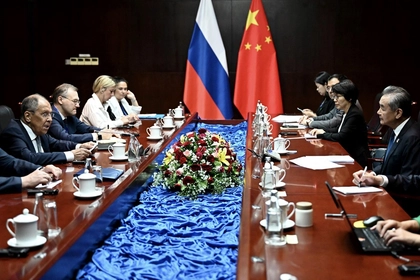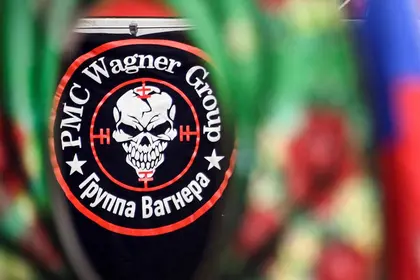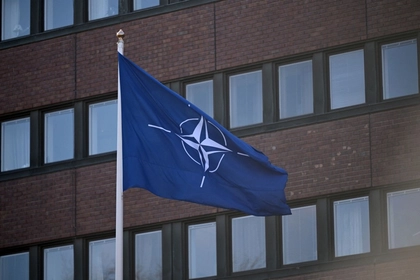The plane crash that reportedly killed Yevgeny Prigozhin wiped out the entire top leadership of Russian paramilitary group Wagner but its influence is set to outlive them all both at home and abroad.
As a Private Military Company (PMC), Wagner showed the potential reach of mercenary outfits in taking part in conflicts well beyond its home country's borders but also creating domestic political havoc.
JOIN US ON TELEGRAM
Follow our coverage of the war on the @Kyivpost_official.
Over the last decade, it took part in conflicts in Africa and the Middle East as well as Ukraine, before Prigozhin in late June led its fighters in the aborted mutiny.
While their deaths have yet to be officially confirmed, Wagner's charismatic leader Prigozhin, its co-founder, and his right-hand-man Dmitry Utkin and shadowy logistics and security boss Valery Chekalov were all listed as being aboard the private jet that crashed in Russia late on Wednesday.
Analysts say that while Wagner's own brand is inevitably going to be weakened, its previous successes will serve to inspire other mercenary groups affiliated to the Russian state to emerge, albeit in a different format with likely greater Kremlin control.
"This process may also involve rebranding, and companies within the Wagner orbit may divide into separate entities based on functional area, which may be nationalised or maintained as quasi-independent entities," said Catrina Doxsee, associate director and associate fellow with the Transnational Threats Project at the Center for Strategic and International Studies (CSIS).

Russia, China FMs Meet as ASEAN Talks Get Underway in Laos
But she added that Russian President Vladimir Putin had likely seen in the June mutiny "the danger" in allowing so much power and responsibility to reside with one man.
"Although Russia is likely to seek to continue its PMC model for foreign policy and security assistance, it is likely that the marketplace of PMCs will diversify away from Wagner's monopoly to prevent a repetition of Prigozhin's challenge to the regime," she added.
- 'More direct control' -
Some other groups are already sprouting, calling themselves Redut, Convoy or Patriot, although little information is available on their composition.
Lou Osborn, from the open-source group All Eyes on Wagner, said these companies "have much less presence and are less successful than Wagner but they follow the same construction", noting the arrival of defectors from Wagner and also their close links with GRU Russian military intelligence.
Lucas Webber, one of the co-founders of the Militant Wire research network, said Russian far-right movements within the military sphere on the internet were now bitterly mourning the deaths of the group's leaders.
"These elements portray the Russian political and military elite as decadent, corrupt and detached from the realities of the battlefield.
"In contrast, they respected Prigozhin as a gritty character who cared about his men's lives, was not afraid to criticise the military leadership and would frequently visit his fighters on the front line."
He said another rebellion by Wagner "is unlikely, though not out of the question in the short term", given how the Kremlin has been actively taking measures to isolate and spread Wagner out under close watch.
Aditya Pareek, research analyst at Janes, said while it is likely that PMCs will see increased Russian state control in response, it is not certain if their role will be reduced.
"It is likely that the Russian state will exert increasingly more direct control over PMCs in foreign countries but is unlikely to fully acknowledge that they are under the direct authority of the Kremlin."
- 'No other figure' -
The scope for work by Russian PMCs remains huge, with the war sparked by Moscow's invasion of Ukraine showing no sign of abating while events in Africa such as the coup in Niger give it the chance to profit from political chaos.
"I am not one of those who believe that the influence of Wagner or those who will succeed Wagner will be reduced in Africa," EU commissioner Thierry Breton told Franceinfo radio.
"I think that will continue… It is part of a determined policy on the part of Russia," he added.
But the question also remains if Russian PMCs will retain their clout without the presence of the charismatic Prigozhin, assuming he was indeed killed in the crash whose cause remains unclear.
"Prigozhin had a great freedom of action, a great capacity for work, an obvious enthusiasm, certain organisational capacities," said Denis Korotkov, Russian investigative journalist who has researched the Wagner group for several years. "I don't see any other figure like him."
You can also highlight the text and press Ctrl + Enter






